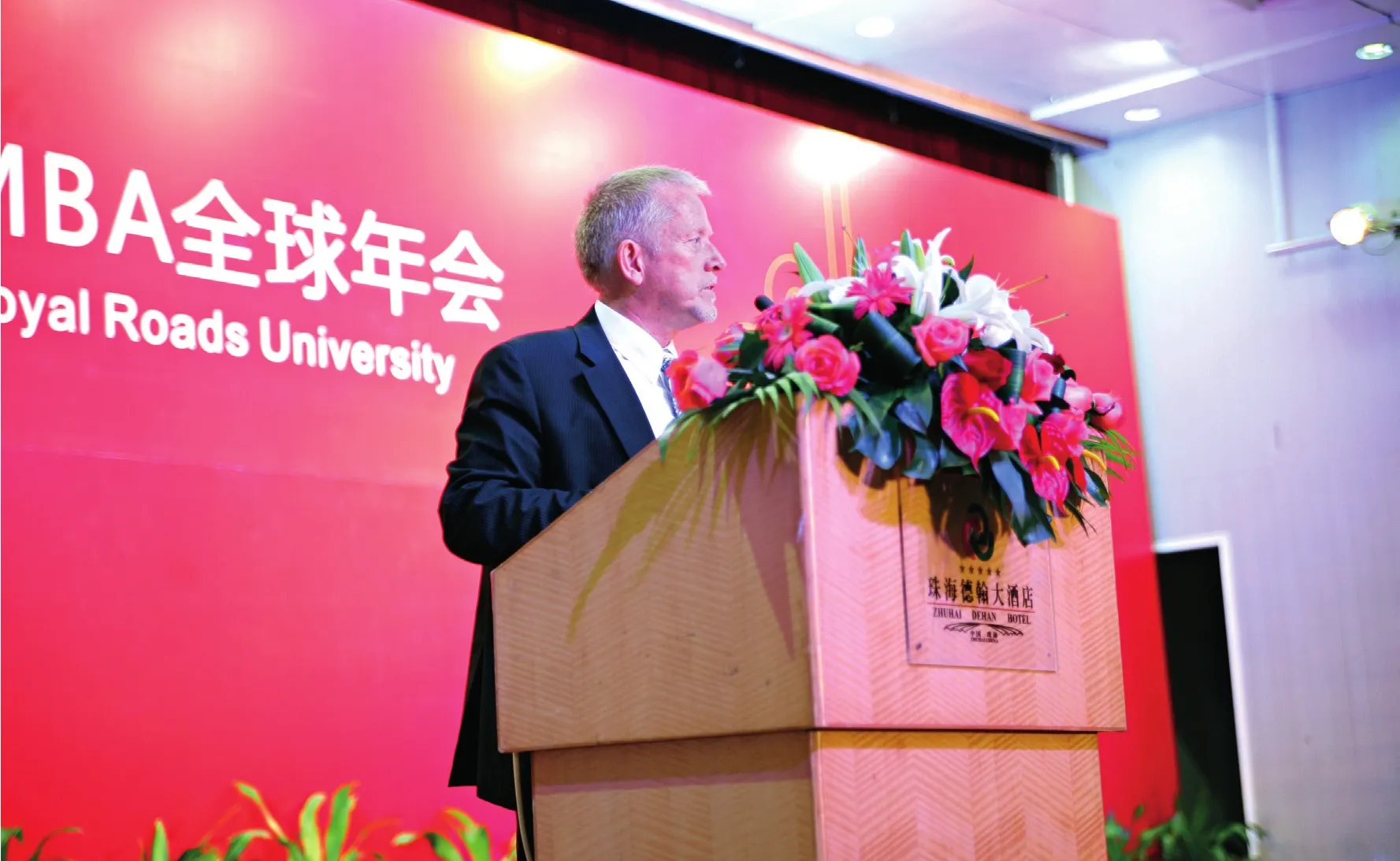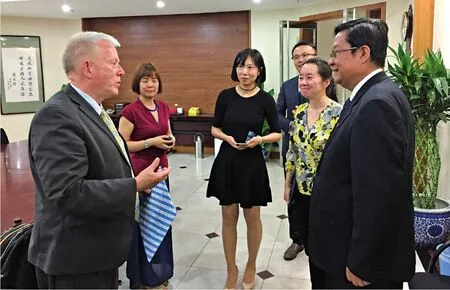Working with China for over 30 Years
By Allan Cahoon
Working with China for over 30 Years
By Allan Cahoon

Allan Cahoon
Early in my academic career, I viewed China as a somewhat mysterious and intriguing country with its vast geography and a large and growing population of resilient people who were adapting to fast-paced change.
In 1987, I was honoured to receive an invitation to present my research on the experiences of men and women in organizations at an international conference in China. I looked forward to meeting potential research colleagues in my fields of interest in executive development, organizational theory and highperforming teams and in particular learning about any research in China that was looking at women and men in leadership. The conference was held in Xi’an at the Xi’an Jiaotong University. I discovered academics and scholars who were not only researching those topics in China, but who expressed a strong desire to collaborate with Canadian scholars. Their curiosity and willingness to work with a Western academic like me was encouraging and ultimately beneficial to my research and teaching interests.
That introduction began for me a long relationship with China which has continued now for over 30 years.In this time I have observed an academic evolution in the country which has appeared in three stages.
The first stage became evident in the 1990s. At that time China had begun sending its scholars and professionals to the university to learn more about professional practice and the management of organizations with a particular focus on the petroleum sector.In this one-way academic stage, they came ready to learn, worked very hard and then returned to China to apply what they learned.
As academics in Canada, we were able to learn from the experience and examples they came with, but primarily we shared our Canadian-based knowledge with our Chinese colleagues.
In the 2000s things began to shift into a second more equalizing stage of our academic evolution. Relationships between Canadian and Chinese universities became more balanced and mutually dependent: exchanges of faculty members and students also became more common. Western institutions began to recog-nize the value of joint collaboration with Chinese universities and research centres.
My interest in research and teaching collaboration was enhanced when I was invited to become a visiting adjunct professor at Hunan University and later at Nankai University and most recently at Tianjin Open University. It was an excellent opportunity to gain firsthand experience in China helping to develop new programs in public administration and executive education.
What I found in this stage is those scholars who had trained in Canada and the United States in the 1990s had come back to China and established very strong academic careers. It was obvious to see the positive effects of China’s investment in education.
It was during this stage that I came to appreciate the magnitude and speed of change that was transforming China. I understood then that scholars and universities in the West should not shape their beliefs on old perceptions of a country because it quickly changes. The only constant stereotype that survived was that China is rapidly transforming!
The third stage I am observing is seeing now the pendulum swinging away from a belief in the preeminence of Western knowledge and practice, towards recognition of the strength and importance of Chinese knowledge and practice.
As we in the West continue to work collaboratively with China, we can discover and learn from China’s advancing research and innovative techniques. The country’s vast scale of resources and unbounded eagerness to learn and grow provide many learning opportunities for us –from a Chinese approach to geo-politics, to Chinese traditional medicine, Chinese scientific research accomplishments and urbanization among many other fields of Chinese excellence.
The State Administration for Foreign Expert Administration (SAFEA) has been an important driver for this Chinese educational revolution. As Vice President at the University of Regina, I had the privilege of hosting many prominent SAFEA visiting scholars,and sharing their commitment to learning and for fomenting international dialogue and exchange.
In 2013 Royal Roads signed a formal agreement with SAFEA, enabling it to successfully provide several customized training programs for groups like CYCIE including public administration, finance training and entrepreneurial education. A month ago, Royal Roads University welcomed its latest group of visiting Chinese professionals for a 14 day training program called “The Role of Government in Transformation,Innovation and Change.” We have also provided teacher training programs for Shanghai Songjiang District, Jiading District and Bejing Fangshan District.We have also designed and offered Master of Arts in Educational Leadership and Management customized training for the Beijing Municipal Government.

Allan Cahoon visited China Education Association for International Exchange
Education is a both a door and a bridge to understanding and cooperation.
Critical for successful international education is first understanding. By understanding each other we begin to value each other. Only then we can start learning. Together we can take that learning and make stronger business, government and personal decisions: we can manage change more effectively on a large scale, including tackling global challenges like climate change and building lasting peace.
When I first arrived in China I was introduced as a new friend. Because I have cultivated a long term and trusted relationship and continue to strive to better understand the “China Way”, I am honoured now to be considered an “old friend” by many of my Chinese colleagues. I look forward to continuing my personal relationship with this country which continues to intrigue me 30 years later: we still have so much to learn together. (the author is PhD, President and Vice-Chancellor of Royal Roads University, Canada)

